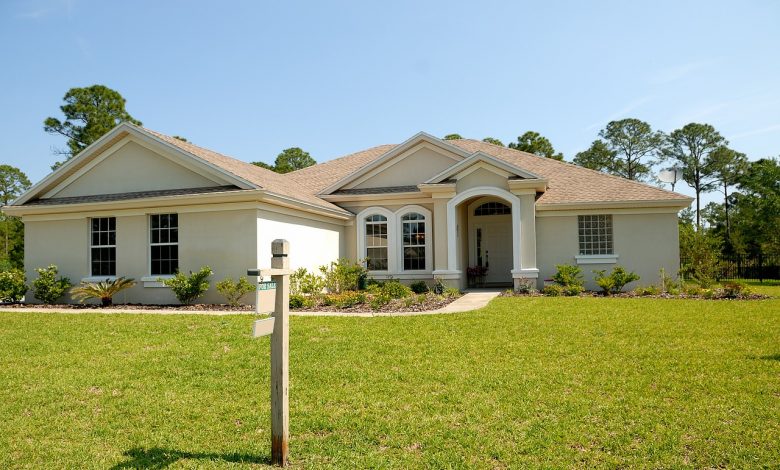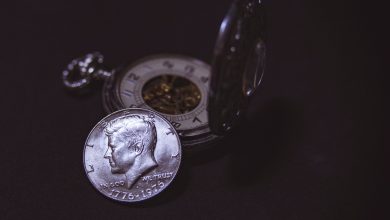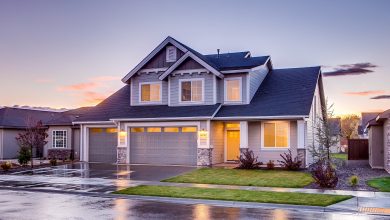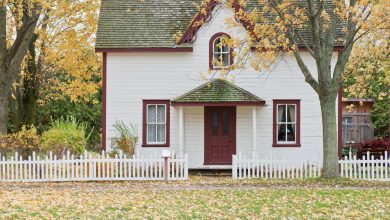Before You Buy: Calculating the Real Value of a Home

It’s hard to imagine a single item that looms larger in the American socioeconomic imagination than a house. Throughout our history, homeownership has been a sign of having “made it.” The bigger and more lavish your home, supposedly, the better off you must be, hence Gatsby’s need for a palatial West Egg mansion in Fitzgerald’s novel. On the flip side of that novelist coin, it’s the loss of the Joad’s home to the bank at the height of the Great Depression that kick-starts the action of Steinbeck’s The Grapes of Wrath. From Norman Rockwell paintings, to “American Gothic,” to the countless sitcom homes that have flickered across our TV screens, owning a house has been a quintessential part of the American middle class’s self-image of itself.
Besides the vision conjured up by literature and media, financially, the justification behind placing so much stock in homes is that they are supposed to accrue with value over time. How much of that American housing tale is true, however, is a more complicated matter, as is the question of whether or not housing costs offset any upside you might get from buying a home. How one calculates the value of a home, what factors are taken into consideration in those calculations, and how we account for unexpected expenditures says a lot about how we view and afford this quintessential, property-based piece of the American Dream.
Calculating the Real Value of Your Home
When evaluating whether or not you should purchase a home, from an economic standpoint, it can be helpful to frame the question in terms of pure value. A simple way to do this is to ask yourself one question: how does your mortgage payment compare to the profit you’d earn if you were to rent the house out? You can take a gander at rates and do a general comparison, but if you want to really break down the numbers you can use what’s called a P/E (price/earnings) ratio. “Earnings,” in this context, would constitute the rental income you would generate from a given property minus the operating expenses you’d need to maintain it. Keep in mind things such as taxes, insurance, and the like that can add up fast. The higher the price of a property, the more taxes you’ll have to pay for it, which can have a huge impact on that P/E ratio.
“Price” is the purchase price of the home. Divide earnings into price and take a look at what you’re left with. The higher this number, generally, the worse of a deal you’re getting. (For reference, a home in an expensive city like New York or Los Angeles should have a P/E of 50 to 60, while the national average is around 40 to 50.) All of this is meant to drill down to what Warren Buffet refers to as “owner earnings.” This is the cash that a property is able to generate that can be safely taken advantage of without taking away from the stash you’ll need to maintain the property. Meanwhile, it is important to factor in the potential growth of the earnings in relation to the price and operational costs – the problem here, however, is that many excited buyers anticipate returns of four or five percent per year, sometimes even while sales and rental prices are already at cycle highs. The average appreciation rate over time, according to economist Robert Shiller, is around 0.4 percent.
One of the most useful tricks is to consider a property as you would a stock. As satisfying as our romanticism over property ownership in this country can be, it still doesn’t contribute to a better or more accurate understanding of a given home’s value when it comes down to the numbers. Instead, you want to view it in terms of raw short and long-term earning potential.
Accounting for Unexpected Expenses
On top of the raw value of the property, you also need to do your best to anticipate disaster and plan accordingly. If that sounds vaguely (or not so vaguely) dramatic, keep in mind that your home is likely to be the most valuable property you own. It’s also, luckily, the one most likely to accrue in value if you find the right deal. That is not true of your car, which only loses value from the moment you drive it off the lot. If you are to get the most out of your home, you’ll want to make sure you have money set aside and a contingency plan for any number of potential home issues. For example, suppose that something goes wrong with your roof. This is an extremely common problem, but not one that everyone is prepared for. Calculating how much roof repairs, septic leaks, water damage, structural problems, and other potential home issues might cost you down the road can also help you decide how much you want to spend up front. Far too many people fail to account for these costs when anticipating how much they’ll spend on a home. Some housing problems are more avoidable than others, but it is extremely rare for a home to never suffer any issue. Chances are, your home will run into some kind of trouble and need repairs at some point. You’ll need to factor that into your calculations when determining the ultimate value of your home in relation to costs.
Other Factors to Consider
It’s not that outside factors can’t affect a home’s potential. The classic real estate adage of “Location, location, location,” remains as true as ever, and just as the value of stocks increase and decrease, so too does the prestige and property value of whole neighborhoods fluctuate according to various factors. If you’re plunking down a huge sum, you’ll want to be sure you are investing in a neighborhood that is on the rise and taking its properties along with it. Checking into the neighborhood surrounding a potential home purchase can help you determine how likely and to what extent boosts – or drops – in property value are likely to occur. Meanwhile, even in real estate, market cycles come and go. While property values tend to appreciate historically, be cautious if values have skyrocketed over a short period of time.
As glittering as the homeownership dream is, it’s important to keep in mind a home’s real financial worth. If you subtract the emotion, the ultimate cost/benefit ratio of owning a home really boils down to a numbers game. By considering homes as raw units of value, you can get a better sense of what they truly look like for both the short and long-term, so that your glittering dream doesn’t turn into a financial nightmare later on.



